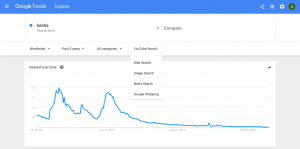— May 25, 2018

A few weeks ago, Facebook tightened up the rules for advertisers who use data from third-party brokers to target ads to the social media platform’s users. Among the changes, marketers can now use only the data they have “the rights, permissions, and lawful basis to use,” according to a memo from Carolyn Everson, Facebook’s VP of global marketing solutions.
The shakeup was part of a larger collection of changes Facebook instituted after news reports surfaced that Cambridge Analytica accessed Facebook users’ personal information without their permission to support the Trump presidential campaign in 2016.
The move is expected to hurt marketers who don’t own a lot of first-party data or who can’t verify that they have user permission to use the data to which they do have access. Luckily for email marketers who use only opt-in methods to build their lists, this isn’t an issue that they have to come to grips with.
Permission and Email: Partners for Decades
Obtaining proper permission is a tactic that responsible email marketers have mastered over the last two decades, ever since Seth Godin turned the term “permission marketing” into the title of a groundbreaking marketing handbook (Permission Marketing: Turning Strangers into Friends, and Friends into Customers in 1999).
If you’re a permission email marketer (that is, you don’t buy or rent mailing lists and can verify that every email address on your list is there because the owner knowingly signed up for your messages), you might be tempted to gloat a little over Facebook’s belated efforts to boost their users’ privacy and control over use of their personal data, including email addresses, behavior and preferences.
But, it also means you have a big advantage in the international battle to curb misuse of consumer data through increasingly stricter legislation. First came CASL (Canada’s Anti-Spam Legislation of 2014) and now the General Data Protection Regulation, which goes into effect on May 25.
The United States remains the biggest country to allow opt-out email, but the tide is turning in favor of permission marketers who far exceed the modest restrictions put on digital marketing by CAN-SPAM, the U.S. laws regulating commercial email.
Digital & Social Articles on Business 2 Community
(48)







